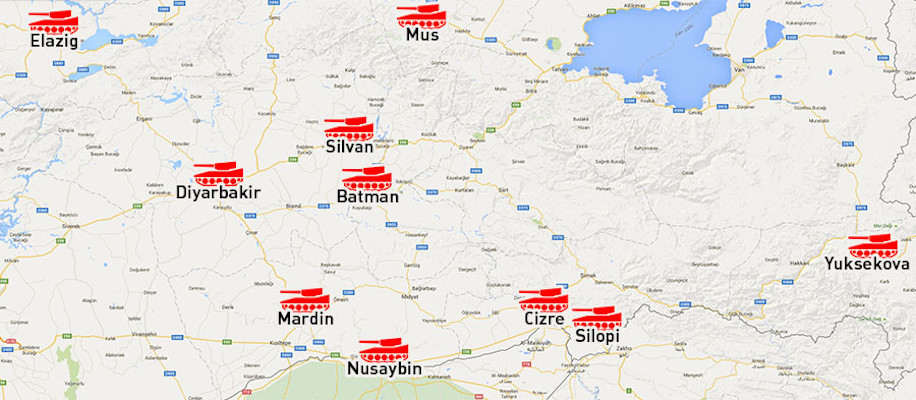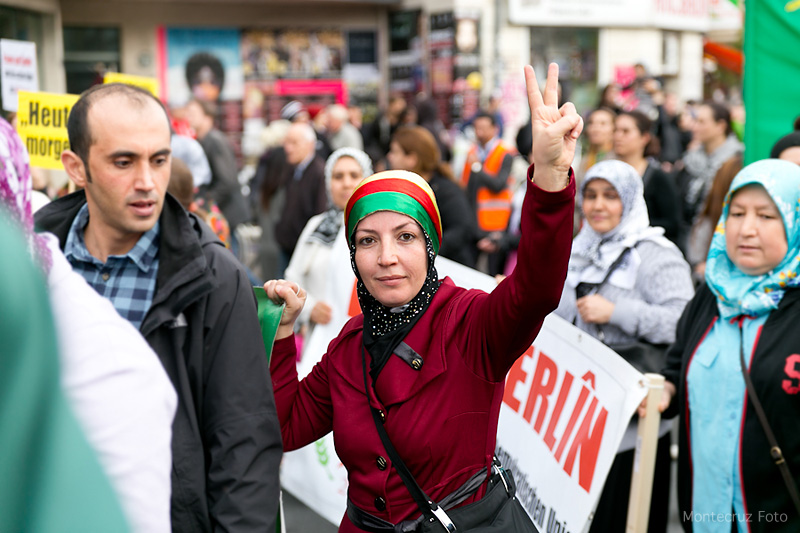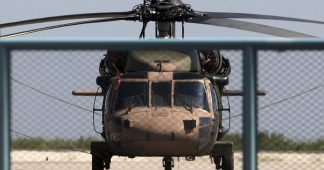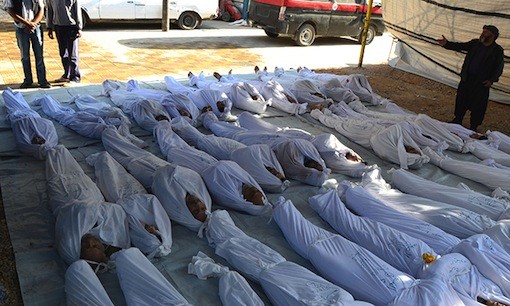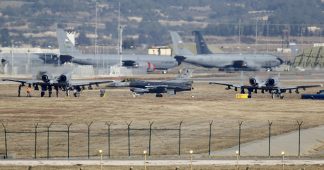By Halil Celik
Τhe Kurdistan Freedom Falcons (TAK), a splinter from the Kurdistan Workers’ Party (PKK), has claimed responsibility for a car bomb attack in central Istanbul Tuesday, which killed seven police officers and four civilians and wounded another 36.
“The action was carried out to counter all the savage attacks of the Turkish republic in Nusaybin and Sirnak and other places,” a statement declared, referring to Turkish army operations in the southeast of the country.
TAK warned “foreign tourists who are in Turkey and who want to come to Turkey: Foreigners are not our target but Turkey is no longer a safe country for them. We have just started the war.”
The BBC reported that Tuesday’s attack was a “sacrifice action”, implying that it was a suicide bombing. This contradicts earlier reports on what is the fourth bomb-attack in central Istanbul this year, which stated that a remote-controlled device was detonated as a riot-police bus was passing by.
According to the Anadolu Agency, following the explosion, there were gunshots in the area, which was closed off to the public and media by police. An Istanbul 10th Criminal Court has issued a broadcast ban in Turkey on the blast. The ban covers all news, interviews and critique in print, visual, internet media and social media.
Another car bombing on June 8 hit the police headquarters of the southeastern town of Midyat, Mardin. Two police officers were killed and many others wounded.
Visiting the wounded in a hospital after the attack in Istanbul, President Recep Tayyip Erdogan once more promised to “continue our fight against these terrorists to the end tirelessly.” His statement was reinforced by Prime Minister Binali Yildirim, who said, “No matter what, the state of the Republic of Turkey will never ever make concessions in the fight against terror.”
Chairperson of the main opposition Republican People’s Party (CHP) Kemal Kılıçdaroğlu and the leader of far-right Nationalist Movement Party (MHP) also condemned the attack, while Selahattin Demirtaş, co-chair of the pro-Kurdish Peoples’ Democratic Party (HDP), slammed the Justice and Development Party (AKP) government for failing to put an end to bloodshed. He blamed the government for creating the conditions for such attacks and called on the leaders of four parties represented in the Turkish parliament to come together at a meeting to put an end to the violence.
The PKK claimed responsibility for a similar May 12 car-bomb attack in Istanbul that wounded seven people. It has waged an armed insurgency against the Turkish state since 1984 and frequently targets passing police and military vehicles with remote-controlled car bombs in its attacks in the largely Kurdish populated southeastern areas of Turkey.
Turkish military and police forces have mounted a sweeping operation against the PKK for more than a year, during which thousands of people have been killed and some 400,000 civilians have been forced to leave their homes, while Kurdish towns go to ruin.
The latest terror attack will only accelerate and facilitate the drive of the Turkish ruling elite towards militarism and dictatorship, while confusing the masses. Immediately after the attack, Erdogan approved a law lifting the immunity of 138 lawmakers, paving the way for criminal proceedings against them.
The main target is the pro-Kurdish HDP, the third-largest party with 59 MPs, which has been consistently accused by Erdogan and his government of aiding and abetting the PKK. But other parties have also been opened to repression in order to pave the way for Erdogan’s plan to amend Turkey’s constitution to create an executive presidency, giving himself dictatorial powers.
On the same day, the Erdogan government brought forward a bill to provide legal protection “to soldiers involved in security operations against groups listed as terrorist organizations.”
The proposal includes a range of measures increasing the authority of the soldiers participating in “anti-terror operations” while requiring the prime minister’s permission to investigate or put on trial the commanders and the chief of general staff.
The bill would allow the Turkish army to participate in operations in central provinces, with a proposal from the Interior Ministry and a decision from the cabinet. A similar judicial shield was previously granted to National Intelligence Organization personnel, granting the prime minister the authority to halt all investigations into its officials.
These moves came a day after the recent wave of reshuffles in the judiciary, in which more than 3,700 judges and prosecutors who had made decisions displeasing Erdogan were replaced by the government, headed by Erdogan’s henchman, President Binali Yildirim, who replaced then Prime Minister Ahmet Davutoglu in May after Erdogan forced him to step down.
Primary responsibility for the terrorist attacks in Turkey rests with the Turkish government and its Western allies, which have been waging a regime-change operation against the Syrian government of President Bashar al-Assad to which end they have gathered, organized, financed and trained Sunni-Islamist militants in a sectarian war that has devastated Syria and Iraq. It is this that has created the basis for the growth of Islamic State (ISIS).
The war in Syria, together with the anti-terror statutes, are also being employed for repression against ethnic Kurds, aimed at preventing the establishment of an autonomous Syrian Kurdish entity on Turkey’s borders.
These twin aims often conflict, given that Washington and the European powers are keen to utilise the Kurdish Peshmerga military forces against Assad and are actively contemplating the partition of Syria. This has forced Erdogan into a series of pragmatic shifts, including utilising Islamist forces such as ISIS and the al-Qaeda-linked al-Nusra against the Kurds. These shifts have in turn brought the AKP regime into conflict with Washington and Berlin, while Ankara’s warmongering and invasive Syrian policy has brought Turkey to the brink of war with Russia. Last year, amid the escalating war against the PKK, Turkish air forces deliberately downed a Russian fighter in Syria.
According to official figures, thousands of PKK militants and some 1,000 security forces as well as civilians have been killed, while whole Kurdish towns have been destroyed over the last six months. Erdogan has responded with threats and bluster directed against his increasingly dissatisfied Western allies, who he suspects with some justification of conspiring to remove him—in particular by seeking to cultivate Davutoglu.
Turkey is also gripped by growing economic difficulties, having witnessed a dramatic fall in investment, trade and tourism that is further provoking social unrest. The only answer of the Turkish ruling elite to its worsening social, economic and political troubles is to escalate its drive to militarism and dictatorship.
